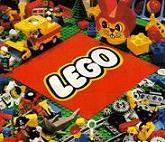Trademark Rights
Lego loses EU trademark dispute over toy brick shape
 Lego A/S, Europe's biggest toymaker, lost a European Union court decision today over region-wide trademark rights for the shape of its famous toy bricks.
Lego A/S, Europe's biggest toymaker, lost a European Union court decision today over region-wide trademark rights for the shape of its famous toy bricks.
The European Court of First Instance in Luxembourg threw out Lego's challenge, saying its arguments that the shape's lack of function entitles the toys to trademark protection “must be rejected.”
Lego is challenging an EU trademark agency decision in 2006, arguing the knobs on top of its bricks make them "highly distinctive'' and thus eligible for a trademark. The EU agency ruled the toys can't be protected because their shape serves a technical purpose.
Today's ruling can be appealed a final time to the European Court of Justice, the EU's top court. Charlotte Simonsen, a Lego spokeswoman, said the Billund, Denmark-based company is disappointed and "expects to appeal" the decision.
While Lego won an EU trademark on the blocks' shape in 1999, Mega Brands Inc., Lego's biggest competitor in the snap-together toys, objected and won after arguing that the shapes of Lego's bricks serve a clear purpose and can't be protected. Lego appealed to the EU court.
EU trademark law “precludes registration of any shape” that is “sufficient to obtain the intended technical result,” the court said. This is the law “even if that result can be achieved by other shapes.”
“We are thrilled,” said Harold Chizick, a spokesman for Montreal-based Mega Brands. The decision “is consistent with other rulings that have happened globally.” ‘
Utilitarian Function’
A precedent-setting ruling by the European Court of Justice in 2002 clarified for the first time that shapes for a technical result can't be protected under EU trademark law. The court rejected Royal Philips Electronics NV's bid to block Spectrum Brands Inc.'s Remington Products from selling shavers with a triangle-shaped rotating head similar to those made by Philips.
Lego's building blocks consist “exclusively” of a shape needed to serve a function, the EU's trademark agency said in its 2006 decision denying the protection.
The court today backed the agency's finding, saying it “was right to find that the shape at issue is functional.”
The two rows of studs on top of Lego's toy bricks perform a “utilitarian function” and aren't “for identification purposes in the trademark sense,” the agency in Alicante, Spain, had said.
(Published by Bloomberg - November 12, 2008)